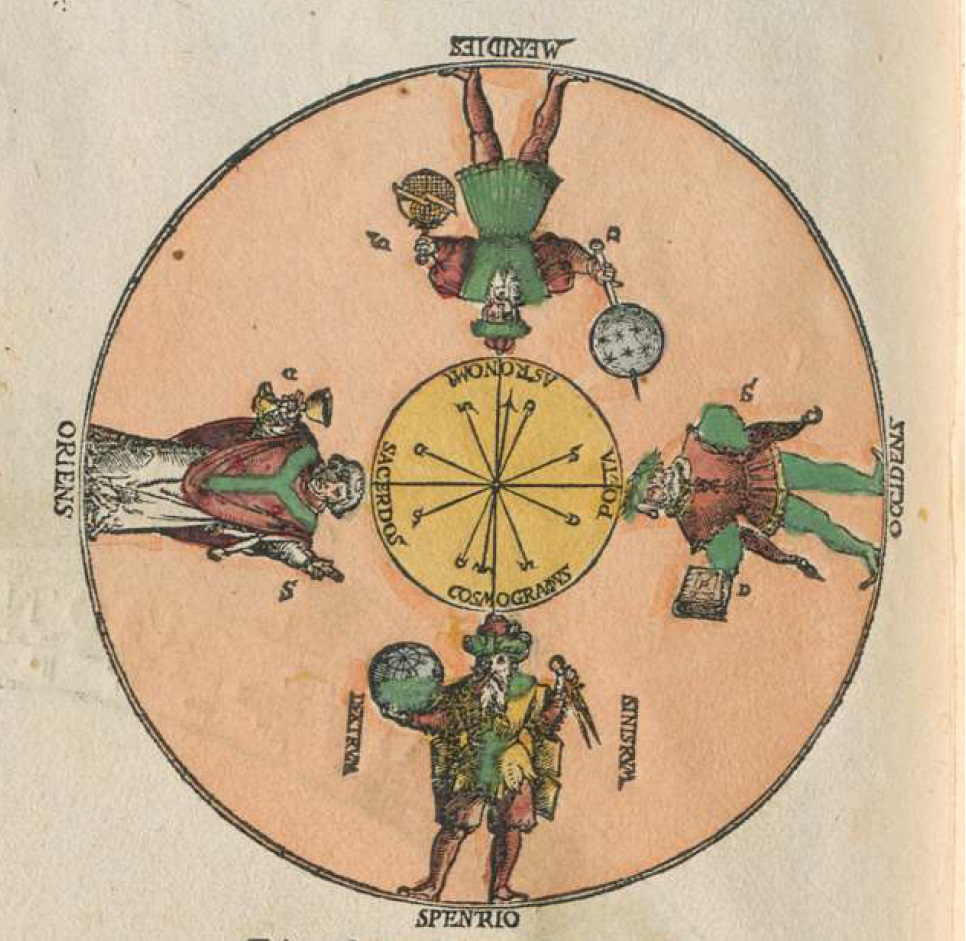Cosmopoetic Form-Knowledge: Astronomy, Poetics, and Ideology in England, 1500-1800

Petrus Apian, Astronomicum Caesareum, Ingolstadt 1540 (Bayerische Staatsbibliothek München, Rar. 821 a, fol. F.iii.v)
About
The project examined the forms by which knowledge travels between the domains of astronomy, poetics, and politics in early modern England. It was based on the observation that knowledge acquires authority only through its formal shaping, and that this authority, inherent in the form, will also apply in other domains of knowledge in which similar forms are employed. Specifically, the project explored the ways in which astronomical knowledge and the forms used for its mediation acquired ideological and poetological meaning. The textual corpus included astronomy textbooks directed at a broad readership – i.e., a genre in which astronomical knowledge is presented pragmatically and framed ideologically. These textbooks’ formal strategies were compared, second, to equally evaluative assessments of poetic form in poetics and rhetoric, as well as self-reflexive, meta-poetic commentary in the poetry of Edmund Spenser, John Milton, James Thomson, Edward Young, and others.
The project confirmed the assumption that the formal strategies employed in the creation and mediation of astronomical knowledge must not merely seen as symptoms of an external social order, but as active interventions in it. Forms such as the (neo-)Platonic unity of the cosmos, the hierarchy of the heavenly orbs or the harmony of the spheres stake a claim for authority that originally derives not from their astronomic objects, but from the spheres of society and poetry. Astronomical ‘evidence’ then, in turn, corroborates the legitimacy of these terrestrial forms of organization or calls for their re-assessment. Astronomical textbooks such as Copernicus’s De revolutionibus (1543), Robert Recorde’s Castle of Knowledge (1556) and Thomas Digges’s A Perfit Description of the Sphere (1576) confirmed the first assumption in particular, i.e., that form-knowledge from the domain of (neo-)Platonic philosophy and early modern conceptions of ordo were employed to legitimize innovations in astronomical thought.
Institutions of the emergent domain of ‘literature’ such as works of poetics, rhetoric, and aesthetics from Thomas Elyot to Archibald Alison allow us to trace how the imagination of other worlds impacted early modern ideas of mimesis, authorship and poetic invention, both in epistemological and ontological terms. Examining texts from this double perspective allowed us to describe the formal strategies brought to bear on early modern astronomical knowledge – i.e., to describe the poetic formation of astronomical knowledge. In addition, we also explored the complementary question, which forms of knowledge are drawn from the objects, methods and technologies of the New Science and come to affect early modern English ideas of form. The ideological ‘cargo’ of such forms, and their function for fashioning identities, is highly charged with a view to gender, class, and religion, as well as constructions of Englishness and cosmopolitanism.

